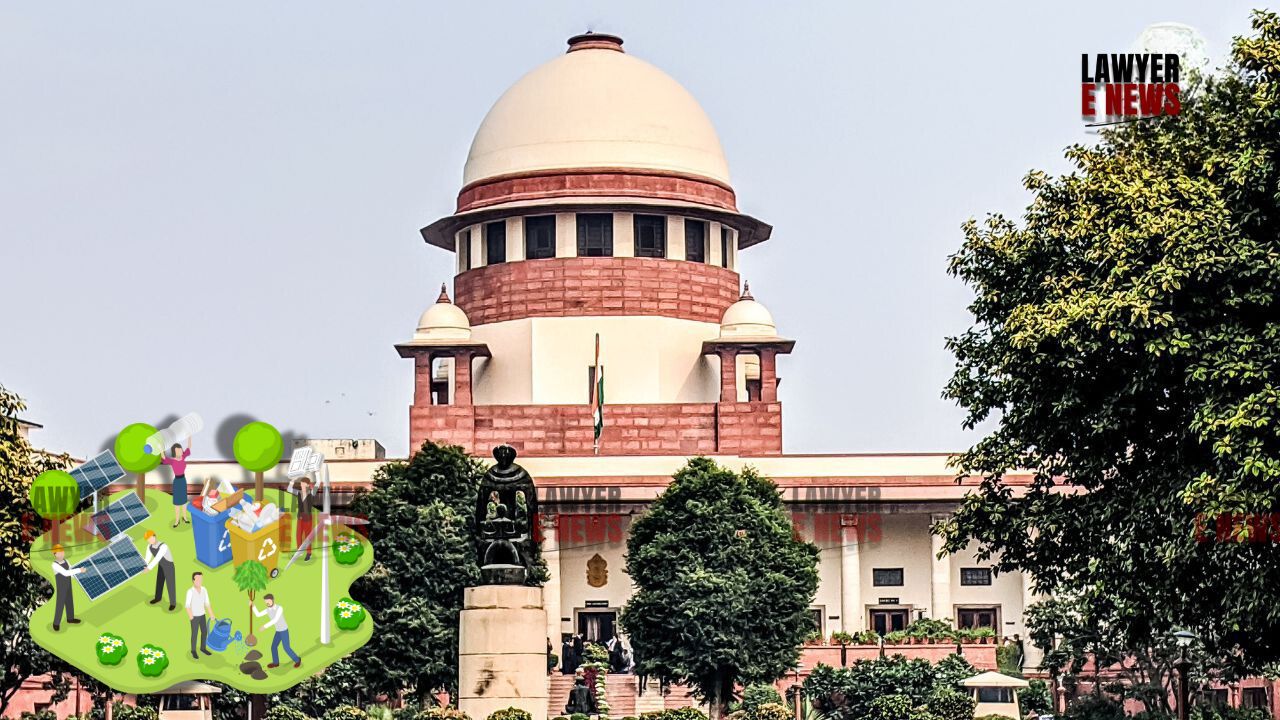-
by sayum
14 February 2026 2:22 PM



The Supreme Court has upheld the decision of the Appellate Tribunal for Electricity (APTEL) in a dispute involving Bangalore Electricity Supply Company Limited (BESCOM) and Hirehalli Solar Power Project LLP. The Court affirmed that the delays in commissioning the solar power project were justified under the force majeure clause of the Power Purchase Agreement (PPA), thereby rejecting BESCOM’s claims for liquidated damages and reduced tariff rates.
The dispute arose from a solar power project in Karnataka, where Hirehalli Solar Power Project LLP (Respondent) faced delays in securing land conversion and grid evacuation approvals, which led to a delay in the project’s commissioning. The project was part of a state policy to promote solar energy among farmers, with a scheduled commissioning date (SCD) of February 28, 2017, under the PPA signed with BESCOM.
Due to various delays, including slow governmental processes and administrative hurdles, the respondents sought an extension of the SCD under the force majeure clause of the PPA. While BESCOM initially granted a six-month extension, the Karnataka Electricity Regulatory Commission (KERC) later imposed liquidated damages and reduced the tariff, rejecting the force majeure claim. The APTEL, however, reversed KERC’s decision, siding with the respondents, which led BESCOM to appeal to the Supreme Court.
The Supreme Court’s judgment focused on whether the delays experienced by the respondents were covered under the force majeure clause of the PPA. The Court noted that the delays in obtaining necessary governmental approvals, such as land conversion and grid evacuation, were beyond the control of the respondents and were not caused by any negligence on their part. The Court observed that “the time taken by government authorities to provide approvals was not within [the respondents’] control,” which justified the invocation of the force majeure clause.
The Court found that the respondents acted with due diligence in pursuing the necessary approvals. It highlighted the fact that similar delays were faced by multiple solar power developers under the same policy, indicating systemic issues rather than individual fault. The Court endorsed APTEL’s findings that the delays were primarily due to the slow governmental processes and the cumbersome nature of the approval procedures, which should not penalize the respondents.
The Supreme Court extensively discussed the principles governing force majeure clauses, particularly in the context of power purchase agreements. It reiterated that such clauses should be interpreted narrowly, yet they must be applied fairly when the conditions are met, as in this case. The Court concluded that the respondents were entitled to an extension of time under the force majeure clause, which negated the need for liquidated damages and a reduction in the tariff.
Justice Pamidighantam Sri Narasimha remarked, “The delay was not caused by the respondents but by the government bodies and relevant authorities…the respondents acted diligently and with care and caution to secure approvals.”
The Supreme Court’s judgment underscores the importance of fair application of force majeure clauses in contracts, particularly in sectors like renewable energy where projects are often subject to administrative delays. By upholding APTEL’s decision, the Court has set a significant precedent, ensuring that developers are not unjustly penalized for delays beyond their control. This ruling will likely influence future disputes in the renewable energy sector, reinforcing the protection afforded by force majeure provisions in PPAs.
Date of Decision: August 27, 2024
Bangalore Electricity Supply Company Limited vs. Hirehalli Solar Power Project LLP & Others
